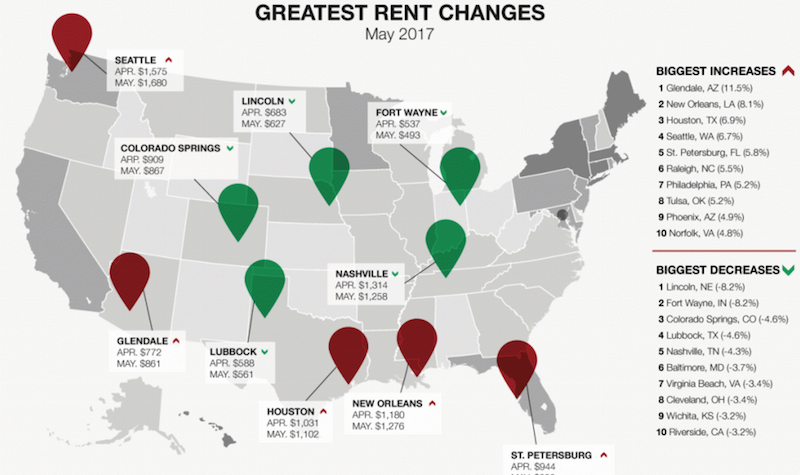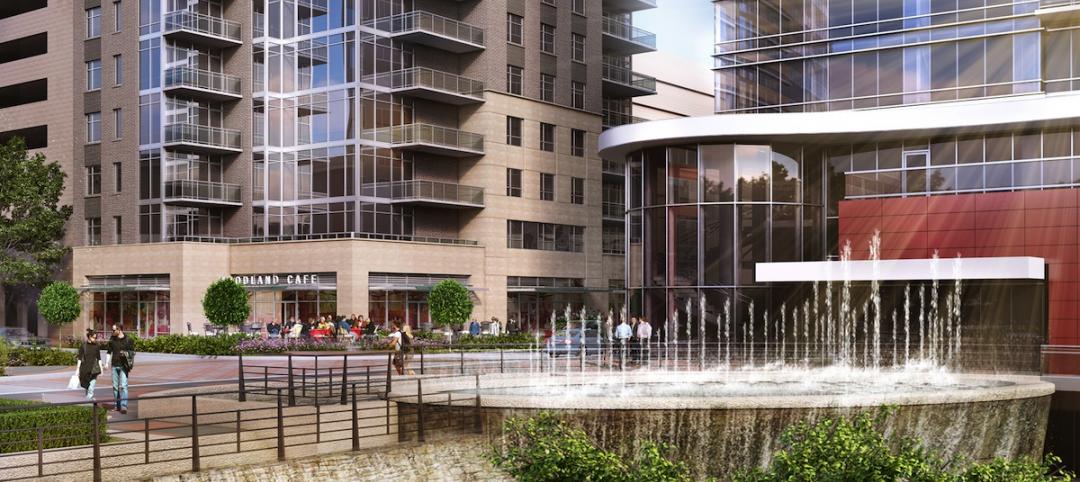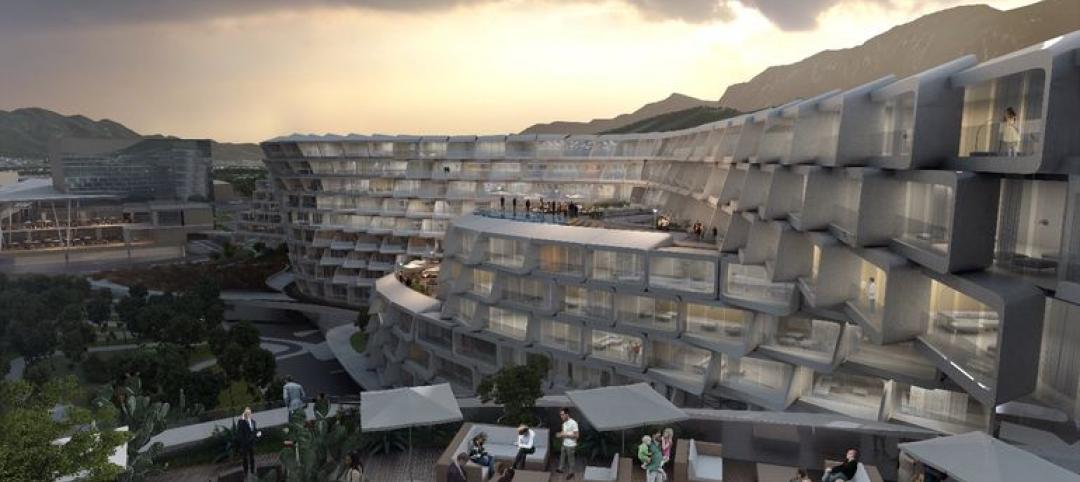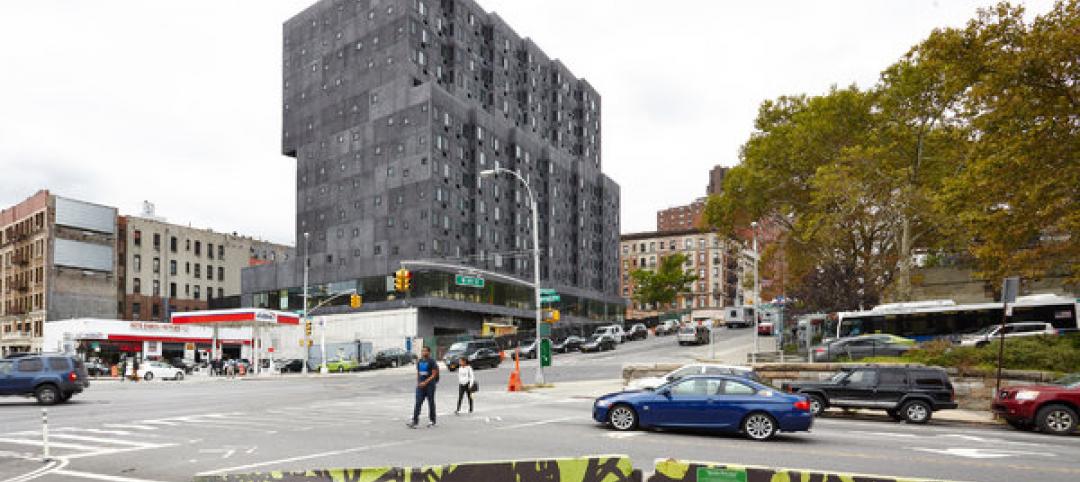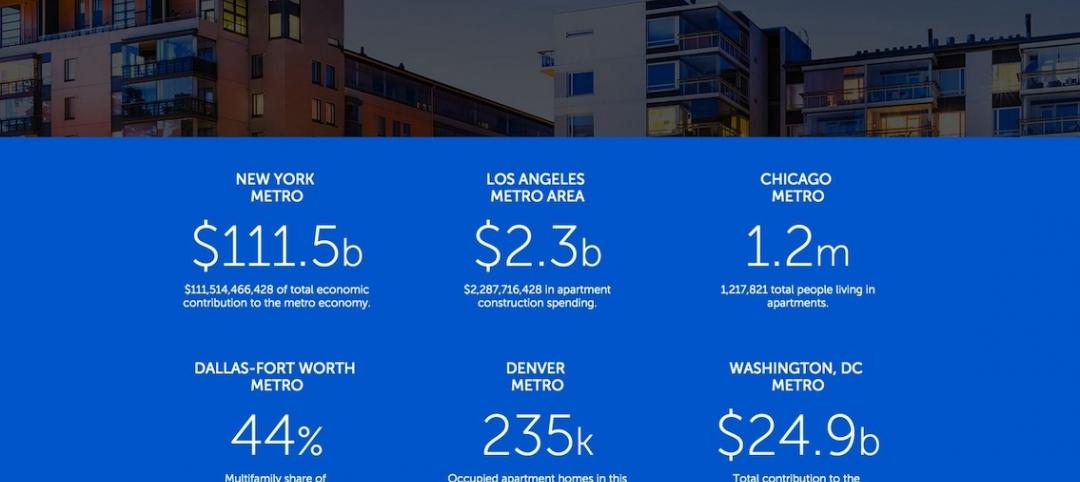Nationally, rent prices increased slightly in April, with the median one-bedroom rent rising to $1,012 per month. That’s the highest it’s been since January’s figure of $1,016, and represents an overall decline since the beginning of the year of .39%.
When it came to the steepest rent drops, two familiar faces led the way: Lincoln, Neb., and Fort Wayne, Ind. Each city’s rent dropped 8.2%, to continue a months-long slide. Lincoln’s median rent of $627 represents a 21% decrease from its January rent of $801, and Fort Wayne’s $493 is a 26.4% decline from its year-opening rent of $671 per month.
Those declines might seem steep. One explanation: In order to better approximate what an apartment-seeker would experience when looking for a place to rent, ABODO collects data only on active listings currently on the market, which can vary widely month-to-month, depending on supply.
The rest of the biggest decreases were more minor, between 3% and 5%. A number of cities — Lubbock, Texas (-4.6%); Nashville, Tenn. (-4.3%); Cleveland, Ohio (-3.4%); and Riverside, Calif. (-3.2%) — reprised their places on the list of greatest decreases for the second month in a row. In fact, this marks the third straight month that Nashville, Cleveland, and Riverside appeared on the list of greatest rental falls.
The nation’s largest rental hike came in Glendale, AZ, where one-bedroom median rents rose 11.5% to $861. That marks the continuation of a months-long trend: Glendale rents have increased every month since January, and currently they’re 26% higher than they were at the beginning of the year. New Orleans (8.1%), Seattle (6.7%), and Phoenix (4.9%) also reprise their places on the list of biggest rent increases.
The list of cities with the nation’s highest rents in April is largely unchanged from our last report. San Francisco’s $3,415 price tag still leads the way, followed by New York City, N.Y. ($2,705), San Jose, Calif. ($2,459); and Boston, Mass. ($2,398). The only newcomer is Seattle, whose 6.7% rental jump to $1,680 puts it at the tenth-highest in the country.
For the full report and to view associated infographics and charts, click here.
Related Stories
Multifamily Housing | May 27, 2015
‘European’ living comes to The Woodlands with its first condo tower
Treviso at Waterway Square will offer a dynamic downtown setting with numerous live/work/play options.
Multifamily Housing | May 19, 2015
Zaha Hadid unveils 'interlocking lattice' design for luxury apartments in Monterrey, Mexico
Hadid's scheme was inspired by the Mexican tradition of interlocking lattice geometries.
Multifamily Housing | May 19, 2015
Study: Urban land use policies costs U.S. economy $1.6 trillion a year
The research contends that more affordable housing options can help cities generate significantly more income.
Multifamily Housing | May 17, 2015
New York City runs into affordable housing dilemma
New York City’s affordable housing policy has created attractive low-cost housing, but the price of success has been high.
Sponsored | Coatings | May 14, 2015
Prismatic coatings accent the new Altara Center
This multi-use campus will contain a university, sports facilities, medical center, and world-class shopping
High-rise Construction | May 6, 2015
Two new designs submitted for New York City Riverside Center
Both designs reference the cantilevers and other elements featured in architect Christian de Portzamparc’s original masterplan for the complex, which has now been scrapped.
High-rise Construction | May 6, 2015
Parks in the sky? Subterranean bike paths? Meet the livable city, designed in 3D
Today’s great cities must be resilient—and open—to many things, including the influx of humanity, writes Gensler co-CEO Andy Cohen.
Mixed-Use | May 5, 2015
Miami ‘innovation district’ will have 6.5 million sf of dense, walkable space
Designing a neighborhood from the ground-up, developers aim to create a dense, walkable district that fulfills what is lacking from Miami’s current auto-dependent layout.
Codes and Standards | May 1, 2015
Colorado House kills construction defects bill
The legislation would have made it harder for condo owners to sue builders.
Multifamily Housing | May 1, 2015
Trade groups extend campaign to promote apartment living
The groups claim that there are more than 37 million Americans—12% of the population—living in just under 20 million apartment units nationwide. Apartments and their residents contribute $1.3 trillion annually to the economy.


